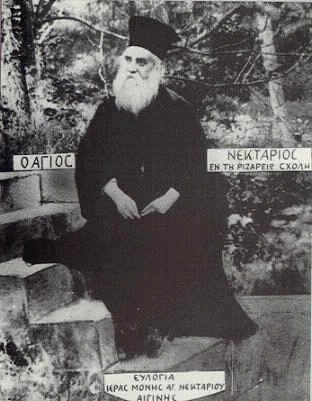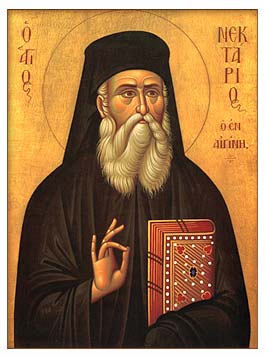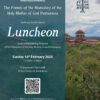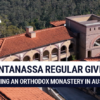
The ancient Greek saying, “know thyself,” has been attributed to at least twelve ancient authors. In its original sense, learning to know oneself was a spiritual odyssey leading to the knowledge of God. Unfortunately, nowadays “know thyself” is often reduced, perhaps for the sake of building self esteem, to “know what thou art good at,” or “know thy gift,” or in a religious context, “know thy ministry.” It seems that the most important thing nowadays is that everyone feel that they are important, that they are good at something; and that this feeling of confidence and importance is what makes human beings healthy.
The Orthodox Church fathers and mothers, however, see things very differently. They see self esteem as the problem, not the solution. They consider that so long as one has high self esteem, one can not really begin to experience humility, which is the chief attribute of God–at least it is the chief attribute of God demonstrated in Christ’s condescension to become human–and it is the beginning or foundation of the ladder of virtues leading to Christlikeness.
Read what a modern saint, St. Nectarios has to say on the important topic of self-knowledge.
Self-knowledge is man’s foremost duty. Man, as a rational, morally free and religious being, is a being of lofty rank and has been destined to become like God, in Whose image he was created, and a participant in Divine goodness and blessedness. But in order to become a divine likeness, good and blessed, and to commune with God, man must first of all know himself. Without self-knowledge man goes astray in his thoughts, is dominated by diverse passions, tyrannized by violent desires, troubled about many and vain things, and leads a disorderly, distracted life, erring in all things, wandering on the way, staggering at every step; and he stumbles, falls, and is crushed. He drinks every day potions of sorrow and bitterness, fills his heart with grief, and lives an unbearable life.”
* * * * *
He who does not know himself does not know God, either. And he who does not know God does not know the truth and the nature of things in general. . . . He who does not know himself continually sins against God and continually moves farther away from Him. He who does not know the nature of things and what they truly are in themselves is powerless to evaluate them according to their worth and to discriminate between the mean and the precious, the worthless and the valuable. Wherefore, such a person wears himself out in the pursuit of vain and trivial things, and is unconcerned about and indifferent to the things that are eternal and most precious.
* * * * *
There is in man by nature the power of self-knowledge, because man is a spiritual and morally free being, having free will and the power of knowing…. But in order to acquire perfect knowledge of himself, man must first will and move towards self-inquiry and make himself an object of his study. Without willing, none of the things that ought to be done can be done.
Unless one wills, one’s moral powers remain idle, no wise leading their possessor to knowledge. The will activates them and renders them manifest. In man, the faculty of the will, strengthened by the faculty of reason and that of free choice and self-control, overcomes all obstacles and succeeds in everything: ‘I will’ becomes ‘I can’ in the man that acts with knowledge and freedom.
* * * * *
Man ought to will to know himself, to know himself, to know God, and to understand the nature of things as they are in themselves, and thus become an image and likeness of God.
* * * * *
Those who know themselves are praised in adages as wise. The writer of the Proverbs, Solomon, says: “Those who know themselves are wise;” (Prov. 13:10) and he advises: “Know thyself and walk in the ways of your heart blameless.” (Eccl. 11:9)
* * * * *
The need of knowing ourselves has been taught by both religion and philosophy. Thales the Milesian held that the beginning of all the virtues is self-knowledge. The Oracle at Delphi called self-knowledge “the foremost and best part of true knowledge.” Clearly, then, self-knowledge is the beginning of all virtue and wisdom. Now if the precept “Know thyself” is imposed upon us by our cognitive power as a Divine law written in our mind, we ought, as rational and morally free beings, to respect it and observe it.”
* * * * *
He who knows himself knows his duties towards himself, towards God, and towards his neighbour, and that piety, justice, truth and knowledge should be for him the touchstone on which he tests all his acts that have reference to God, to himself, and to his neighbour. . . . He who knows himself is never puffed up, never filled with pride, but first of all he knows his shortcomings and faults, always comparing himself with the ideal prototype, in the likeness of which he ought to develop himself, inasmuch as he sees how much he falls short of it.
Source: Modern Orthodox Saints Vol. 7 St Nectarios of Aegina by Constantine Cavarnos





